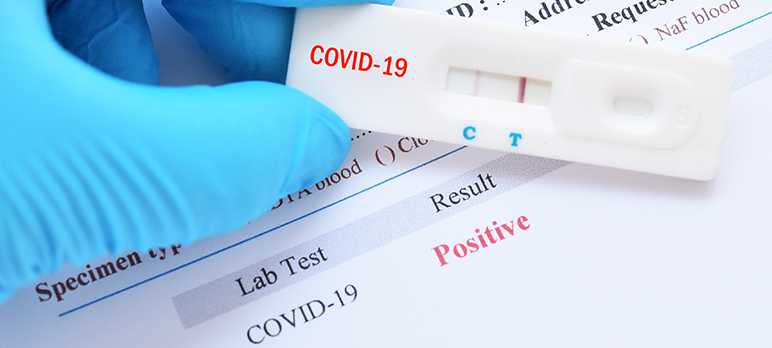Two months ago, John Farhangui insisted he had a viable solution for California’s fight against Covid-19: at-home testing for everyone.
Then, Farhangui, CEO and founder of telehealth firm SAMI-Aid, hit a roadblock.
“We presented a plan, [public officials] looked at it and was like ‘Meh, we feel like we can do it better,’” he said in a phone call with San Jose Inside. “As a result, we’ve spent billions and billions of dollars and in effect tried to treat people in labs and parking lots.”
Despite that, however, the home test kits from SAMI-Aid—which stands for Smart Affordable Medical Information—are finally gaining traction.
Earlier this month, the San Jose healthcare company became one of only a few in the state to launch an at-home Covid-19 test, which Farhangui calls a game-changer for its access, affordability and because it empowers potentially sick people to stay home.
“The at-home test is important because of your isolation,” Farhangui said. “You stay at home and do not circulate [Covid]. We told the state from the get-go that at-home testing would be the best way to go. ... California and the rest of the nation are coming around to this solution. It’s unfortunate that we’re probably two to three months too late.”
Had at-home testing been more ubiquitous at the start of the coronavirus pandemic, Farhangui reasoned, then the U.S. would have increased its chances of averting the health crisis it finds itself in today.
“Unfortunately, we didn’t get this thing out two to three months ago, or we would be in a better situation than we are in now,” he said. “[Widespread diagnostic at-home] testing is the key to containment, and not only to containment, but the key to preserving all of the hospital’s capabilities, limiting the spread of disease, having lower infection rates and a better understanding of contact tracing.”
Even though the technology is ready, no company has federal approval to sell at-home tests directly to consumers for widespread screening—a step many health experts believe is key in slowing the spread of Covid-19.
An at-home test allows people to test themselves even if they don’t have any symptoms, which could help prevent the spread of the virus. The U.S. needs 30 million tests a week to adequately track the virus and protect vulnerable residents, according to USA Today via the Rockefeller Foundation.
According to Farhangui, SAMI-Aid is one of the few companies in the state that offers a saliva test, which is cheaper and less invasive than the nasal swab and can be performed without the need for certain testing components than have run short during the pandemic.
“When Covid-19 started, we realized very quickly that telemedicine would have to be if not the solution a key component of the solution to understanding and managing Covid-19,” Farhangui explained in a recent interview. “The at-home test is one of the few revolutionary trends we have now in medicine.”
An at-home COVID-19 test from SAMI-Aid costs $115. Patients can start their free Covid-19 risk assessment online. Similar to a DNA test, patients receive a kit, provide a saliva sample and mail the kit back for result within 48 hours.


> San Jose Telemedicine Company Releases At-Home Covid-19 Test
Important questions:
What is the FALSE POSITIVE rate?
What is the FALSE NEGATIVE rate?
When in the infection cycle can the results of this test be believed?
When in the infection cycle does this test provide meaningless results?
I beg Mr. Farhangui to develop and quickly bring to market a home kit to test Californians for their readiness to storm the state capitol, because I’m sure feeling the symptoms.